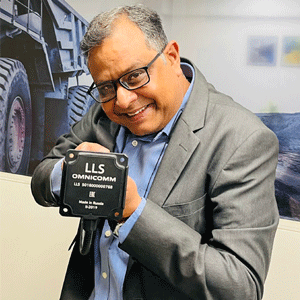
A little known field called Telematics is contributing to multiple industries by adding significant optimizations to core working parts in them, and the interest and competition on this is rising globally owing to its capabilities. Telematics, which is sometimes also called Telemetry, is an interdisciplinary technology that is used within systems to measure core values and control important aspects within them, often from a distance, preferably wirelessly. Globally, the commercial Telematics market had a value of $34.79 billion in 2020, and it is anticipated to expand at a rate of 21.6 percent CAGR until 2028.
This technology is present in most modern vehicles, complex machinery and telecommunications sectors. In this article, we’ll see how Omnicomm, a pioneer in this field is impacting the world through its innovative contributions to Telematics. Omnicomm develops many things among which its fuel sensors are considered among the best globally. The company develops multiple capacitance based sensors that can detect fuel levels with an unmatched accuracy of 99.5 percent along with
adulteration and among other things, to optimize fuel consumption with which the industries that use their service can increase their profits and minimize losses.
Helping Multiple Industries
Telematics market mostly provides for the customers in several industries spanning from construction, mining, logistics, oil & gas and telecom. The construction industry is, most open to new Telematics products due to their direct reliance for optimization Most vehicles made for construction also use up fuel very fast, so Telematics sensors become a great tool to ensure optimized operations. Logistics and telecommunication sectors on the other hand, make up a smaller portion of the Telematics products market, but nonetheless are reaching an inflection point when it comes to adopting Telematics products.
Logistics, although a larger market than construction, is much slower in opening up to Telemetry products because of its size and complicated functions. However, much of the logistics sector relies on Telemetry, with vehicle fleet management systems, safety systems and even comfort of the drivers now being controlled by sensor technology. Telecom sector is the emerging market for Telematics products, as each telecom tower basically needs a constant fuel supply that can be monitored accordingly for best performance. “In the coming years, we expect a boom in the telecommunication industry when it comes to adoption of our products. This is because of digitization, which has seen a rise in this sector”, says Surjodoy Ghosh, who is the Managing Director of Omnicomm India.
Company Journey & Future Trajectory
Omnicomm has a rich history spanning over 20+ years and their offices are located in multiple countries including Africa, Russia, Brazil, India and many more. Its sensors, particularly those that can auto-calibrate have made Omnicomm a household name in the Telematics space. The company currently employs over 200 people and invests heavily in research and development. The Indian office, established in 2017, is going to play a major operational role in its services in the country.
Due to the recent interest in digitization in many sectors, the Telematics market has become quite competitive in this industry, with major players coming from Europe, with countries like Russia and Belarus taking the lead. This is because the harsh weather conditions in Europe force the need of good sensor based mechanisms for optimization. Omnicomm is, however, committed to giving its customers in India or elsewhere, the best value in the Telematics space as it has been doing for many years now.
We use cookies to ensure you get the best experience on our website. Read more...